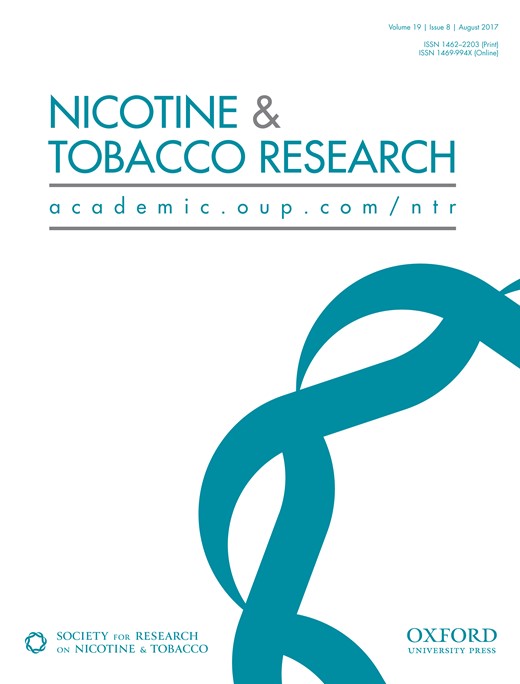-
Views
-
Cite
Cite
William R. Shanahan, Jed E Rose, Alan Glicklich, Scott Stubbe, Matilde Sanchez-Kam, Lorcaserin for Smoking Cessation and Associated Weight Gain: A Randomized 12-Week Clinical Trial, Nicotine & Tobacco Research, Volume 19, Issue 8, August 2017, Pages 944–951, https://doi.org/10.1093/ntr/ntw301
Close - Share Icon Share
Abstract
Lorcaserin is a selective serotonin 2C receptor agonist approved by the Food and Drug Administration for chronic weight management. Preclinical data suggest that it may also be effective in smoking cessation through modulation of the dopaminergic reward system.
This was a 12-week, randomized, double-blind, placebo-controlled trial conducted in 30 centers in the United States. Six hundred three adult smokers with a Body Mass Index of 18.5–35 kg/m2, averaging at least 10 cigarettes/day with no period of abstinence >3 months for the past year were randomized to lorcaserin 10 mg once daily (QD), 10 mg twice daily (BID) or placebo; all received standardized smoking cessation counseling weekly. The target quit date was day 15. The primary endpoint was the exhaled carbon monoxide confirmed Continuous Abstinence Rate for weeks 9–12 (month 3).
Continuous Abstinence Rates for month 3 were 5.6%, 8.7%, and 15.3% for the placebo, QD and BID groups, respectively (BID vs. placebo odds ratio 3.02, 95% confidence interval 1.47, 6.22, p = .0027. Change in weight at week 12 (randomized population) was −0.01, −0.35 and −0.98 kg, respectively (p = .0004, BID vs. placebo), and +0.73, +0.76, and −0.41 kg in participants achieving month 3 continuous abstinence. The most frequent adverse events were headache, nausea, constipation, and fatigue.
Lorcaserin with counseling was associated with dose-related increases in smoking cessation and prevention of associated weight gain over a 3-month period. Further investigation of lorcaserin in smoking cessation is warranted. Trial Registration: ClinicalTrials.gov. Identifier: NCT02044874
This randomized, controlled trial demonstrated that lorcaserin used in conjunction with standard cessation counseling was associated with dose-related increases in smoking cessation and prevention of associated weight gain. To our knowledge, this is the first demonstration in humans of a potential role of 5-HT2C agonism in the modulation of central neurological circuits involved with reward.






Comments